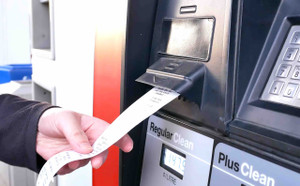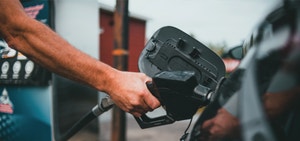Premium vs. regular gas: Common considerations
By Kijiji Autos
JJ'Studio - stock.adobe.com
You pull up to the gas pump and see there is a choice of premium or regular gas. Have you ever wondered what the difference is? Maybe you wondered if premium gas is necessary or worth the extra money. Here are some tips to help you decide which is best for your vehicle :
The difference between premium gas vs. regular gas
Gases are subject to an octane rating, which measures a fuel’s ability to resist compression. How it works is, with a higher octane level, there is less likelihood of detonation occurring because it can take more compression. In most states, regular gas is rated at 87 and premium gas is rated at 91 or 93. An occasional detonation at the wrong time won’t harm your engine, but if it happens quite a bit, it could contribute to cause your engine’s performance to decline.
Cars that may require premium gas
Most cars are optimized to run on regular gas. Cars that may require high octane premium gas are cars with engines that have high compression ratios or turbochargers that need it for their intended performance, fuel efficiency and emissions. In this case, the extra cost is worth it if you want your engine to perform at its best.
If you use lower octane gas when higher octane is called for, modern vehicles have an Electronic Control Unit that can account for the difference and adjust, but it could be that your horsepower and miles per gallon will go down, while CO2 emissions will increase.
If an older car doesn't get the premium gas that it needs, it might contribue to engine knock, meaning the fuel doesn't burn evenly in the engine's cylinders, causing combustion to occur at the wrong time. This can lead to engine damage. That said, newer cars have sensors monitored by the engine’s computer that help to prevent this. If it only happens occasionally, though, the engine’s computer can adjust the ignition timing, but it isn’t something that should be done too often.
Other factors
Another thing to consider in gas are detergent additives. These additives help clean your engine for the best performance. Each retailer has its own blend of additives, across all grades of gas. A Top Tier Gasoline standard was established with the help of BMW, Honda, Toyota, Volkswagen and Audi.
This Top Tier Gasoline goes beyond the minimum required EPA requirement and has a higher percentage of detergent additives. A lower concentration of detergent additives might leave more deposits on fuel injectors, intake valves and other engine components, potentially contributing to increased emissions and lower engine performance.
Conclusion
Premium gas costs around 50 cents more a gallon, which certainly adds up. The majority of cars get no benefit from that extra cost, so you could stick to the octane level that is recommended in your owner’s manual. The Federal Trade Commission advised consumers that in most cases, the higher octane gas won’t make your car get better mileage or performance.
If this has you pumped about looking for your next vehicle, browse Kijiji Autos for new and used vehicles in your area. Use the Online Financing listings to find and finance your next car.
Easily find your next ride on Kijiji Autos
Search nowHow Long Can a Car Sit Unused?
How long can a car be left without starting it? Keep reading to explore everything you need to know about unused cars.Costs of Installing an Electric Car (EV) Charging Station in Canada
Installing a home EV charger can come with additional fees beyond purchase and installation. Here's a list of factors that can affect the price of a home EV charger.Toronto to Calgary Road Trip: Routes & Tips
Planning on driving from Toronto to Calgary? Here are some routes and tips to help you along the way.Flat Tire vs Blowout: What's the Difference & What Should You Do?
The main difference between a flat tire and a blowout is that a blowout often feels like an explosion has occurred underneath your vehicle. Blowouts can cause sudden and drastic changes to the handling of your vehicle and can lead to minor or even serious accidents.7 items you can fit in an SUV: TVs, mattresses and more
Discover seven common items that fit in an SUV below.Tips to help protect your vehicle and budget for car repairs
When shopping for your next vehicle, it's always a good idea to keep hidden costs in mind. Before you buy, let's look at how much it can cost to maintain a car in Canada, how much you could budget for annual maintenance and repairs, and how to help protect your car against damage and depreciationThe top three best paint protection options for your vehicle
Buying a new vehicle is a great experience. Nothing beats hitting the road in a car you bought fresh off the lot. However, as fun as it is to finally get behind the wheel of your new ride, it's important to take your time through the process.What is the value of undercoat protection on your vehicle?
When you buy a new vehicle, protecting it so that it lasts as long as possible is definitely top of mind, whether that's through security upgrades or an extra coat of paint. But how often do you consider the care and safety of your vehicle’s undercarriage?Financial guide: post-pandemic car shopping and gas price hacks
With populations locked down and international borders closed the global supply chain has been disrupted on a massive scale, pushing up inflation around the world and raising the cost of everything that people need to get back to normal. Here are a few tips you can use to grab the vehicle you want without breaking the bank.10 tips to help make the road a better and happier place
We have all, at some point, been responsible for making the roadways stressful in one way or another. Alternatively, we are all equally capable of making the road a happier place. Let’s explore 10 unique ways we can help make the driving experience better again, for everyone's sake.








